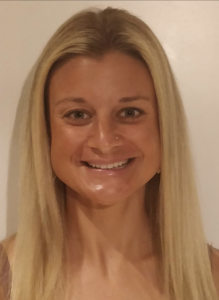University of Oxford
11a Mansfield Rd
OX1 3SZ
UK

Brittany Bartlett
Background
Therefore, following an undergraduate degree in environmental studies and political science, I continued with my education and received a master’s degree in marine affairs and policy, during which I had the opportunity to hold two internships focused on shark and sea turtle conservation management.
Following my graduate work and a brief stint in environmental consulting, I took a position with the U.S. Navy as a marine resources specialist for eight years – working at the intersection of science and policy, translating biological and ecological data into effective management recommendations. I now return to the world of academia, hoping to apply this experience to develop effective marine policy in the world of fisheries.
Research Interests
My interests lie at the intersection of science and policy, working to translate the natural and social sciences into conservation management mechanisms that will benefit the environment and the people who depend on it.
Additionally, I greatly advocate for capacity building and environmental education for our youth. A few years ago, I recently co-founded a small non-profit, The Next Swell. Through this non-profit organization, I hope to cultivate future generations of marine conservationists and scientists through education and opportunity. Fostering and inspiring the next generation of marine conservation scientists is critical to protecting our environment.
Current Research
Overfishing and its negative implications on shark populations are exacerbated by illegal, unreported, and unregulated (IUU) fishing practices – a conflated term and compilation of complex global threats that vary, not only by definition and meaning but also across time, space, and fisheries, representing diverse drivers, impacts, and management requirements. Yet, despite these complexities, top-down management tends to homogenize the cause(s), issue(s), and response(s) associated with IUU fishing across spatiotemporal scales. As a result, small-scale fisheries, which are particularly susceptible to these fishing practices, become exceptionally vulnerable to their implications. A lack of understanding regarding the variable nature of illegal, unreported, and unregulated small-scale fishing practices across time and space often results in management that ignores human dynamics and social complexities, impeding the effective implementation of shark conservation mechanisms. Therefore, research is needed on a discrete, species-specific, spatiotemporal scale to ensure policy relevancy due to the diversity of small-scale fisheries and the increased vulnerability of shark populations. My research will aim to use an interdisciplinary approach that includes and enables the equitable incorporation of community stakeholders to reduce illegal, unreported, and unregulated fishing practices and encourage the adoption of effective shark conservation mechanisms in small-scale fisheries.
Brief CV
Education
2011 – 2013 MS, Marine Affairs & Policy, Rosenstiel School of Marine, Atmospheric, & Earth Science, University of Miami
2007 – 2011 BA, Dual Degree in Environmental Studies & Political Science, Lehigh University
Professional Experience
2020 – Present Co-Founder/President, The Next Swell
2015 – 2023 Marine Resources Specialist, United States Department of the Navy
2013 – 2015 Scientist II, CB&I
2012 – 2013 Intern, Shark Research and Conservation Program, University of Miami
2012 Intern, Turtle Island Restoration Network
